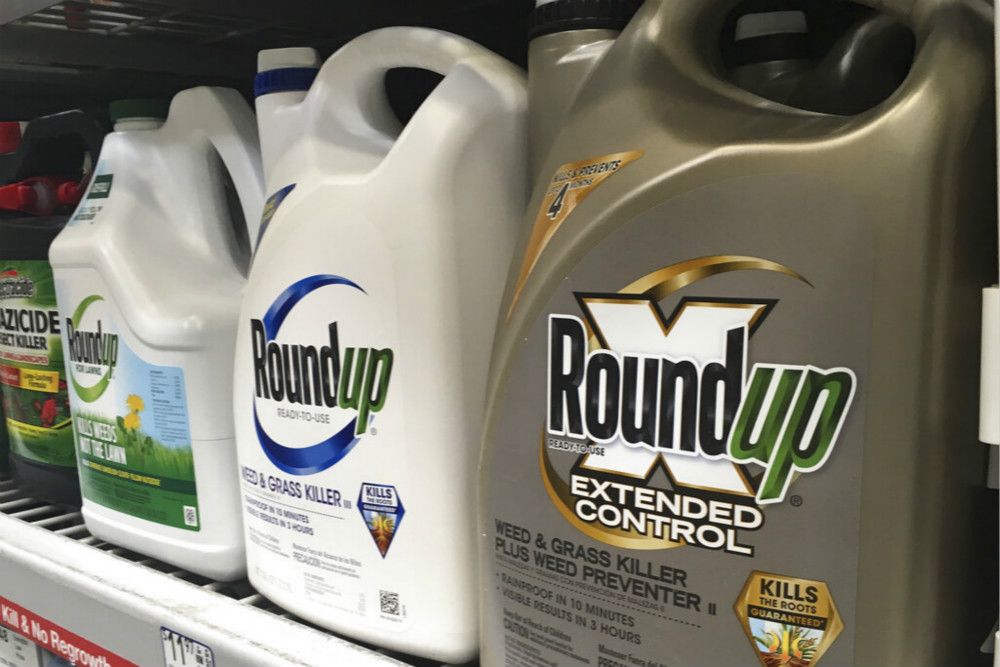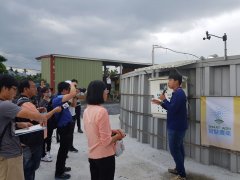The California couple accused Roundup of causing cancer harm by the US court ordered Monsanto to pay compensation
Known for producing GM seeds and herbicides, Monsanto, the world's largest genetically modified agricultural giant, has been strongly protested by environmental groups over the years, believing that the company not only causes serious damage to the environment, but also harms users with its chemical composition, triggering lawsuits and demonstrations everywhere.
Well-known herbicides cause cancer

Roundup, a well-known glyphosate herbicide owned by Monsanto, was sued by a couple living in California that the chemical in the product was the main cause of their non-Hodgkin's lymphoma (Non-Hodgkin lymphoma), the Associated Press (AP) reported. Glyphosate, the trade name is every spring or Nongda, good you spring, every day spring, daily spring, good Bochun and so on.
The couple believe that they have been using "every spring" weeding on their land for years since 1975 and stopped using it in 2011. The couple were diagnosed with cancer in 2011 and 2015 respectively, and finally decided to file a lawsuit against Monsanto in 2017 to get justice.
The jury awarded Monsanto $2 billion in damages
After nearly two years of trial, the High Court in Alameda, California, ruled by a jury on the 14th that Monsanto must pay a total of $2,055 million to the Alva and Alberta Pilliod couple.
In the ruling, Awa, the husband who filed the complaint, received compensation of US $18 million (about NT $560 million) and punitive damages of US $1 billion (NT $31,086 million), while his wife Alberta received US $37 million in compensation and US $1 billion (about NT $31,086 million) in punitive damages.
The couple, who accused Monsanto of causing their cancer, were accompanied by a lawyer at the press conference. (associated Press)
Never "actively remind" consumers of the danger.
The jury found that Monsanto did not add the product to the herbicide package as a risk of cancer and showed a sense of carelessness afterwards.
The couple's defense lawyer said, "the internal documents reviewed by the jury show that from the first day of shelves every spring, they [Monsanto] did not check whether the product was safe at all. Not only do they not take the initiative to examine them, on the contrary, they have invested millions of dollars to attack various scientific reports that "damage goodwill" to the outside world. "
The jury found that Monsanto did not indicate a risk of cancer in addition to the herbicide for a long time. (associated Press)
Bayer will appeal again
But Bayer, Monsanto's new owner, said it was disappointed by the jury's verdict and would continue to appeal. They protested against the US and EU governments' accusations that products containing Glyphosate could cause cancer.
Bayer even pointed out, "Awa and Alberta have a long medical history, (we) believe that is the main cause of their cancer." "
Bayer, a German drug magnate, bought Monsanto in 2018, triggering a large number of German people to take to the streets. (Thomson Reuters)
Monsanto Group, an American company that dominates GM agriculture, holds more than 70% of the world's agricultural seeds and nearly 90% of the market share in the United States. Its best-known product is the Glyphosate herbicide called Roundup.
The company began to face many protests and class action lawsuits around the world after it was revealed by the media that it used GM seeds and herbicides to control farmers and agriculture, resulting in the squeeze of small farmers. Coupled with the fact that GM products have always been unconvincing, the global anti-Monsanto movement has broken out many times in an attempt to break the monopoly of this "giant".
- Prev

Farmers respond to the revitalization of soybean subsidy of 340 yuan per mu under the Sino-US trade war.
Most of China's soybeans come from the United States, and most soybeans are imported from the United States. Under the influence of the Sino-US trade war, China will greatly increase the tax on American agricultural products, while China will have to adopt corresponding agricultural policies to increase the proportion of home-grown soybeans. According to the center
- Next

The latest news of intelligent agriculture: a new model of intelligent farming, fish fry operators invite the same industry to demonstrate and exchange
The Agricultural Committee of the Executive Yuan has invested in intelligent agriculture to promote it into its third year. So far, a number of industrial grounding highlights have been gradually launched. On May 17, the "Outstanding Achievement observation of Smart Aquaculture Fisheries Industry" was held in Pingtung San Sparus Aquaculture Science and Technology. The team of the Fisheries Experimental Institute combines wisdom.
Related
- A one-day flower show brings 130 million yuan in orders! Nanhai, this Phalaenopsis exhibition is amazing
- What do the flower language and meaning of Lutheran tree mean? Precautions for planting Lutheran tree
- Encounter Chaoshan Kongfu tea, not without this cup of Phoenix single clump
- The durian market in Vietnam and Thailand is flooded. The price of imported durian has plummeted by 30-40% in a month.
- Shanghai solved the problem of local vegetable supply by planting 80,000 mu of green leafy vegetables.
- Wageningen University has become the best agricultural university in the world for the seventh time in a row.
- The strongest export season of South African grapes is full of challenges, with exports to Russia falling sharply by 21%.
- Sri Lanka is on the verge of bankruptcy, "Tea for debt" Organic Agriculture Revolution aggravates the Food crisis?
- Turning waste into earthworm manure and worm manure into organic fertilizer-A new choice for auxiliary farming
- Organic rice growers shoulder the responsibility of nurturing agricultural talents! Yinchuan Sustainable Farm with Organic Life Camp

